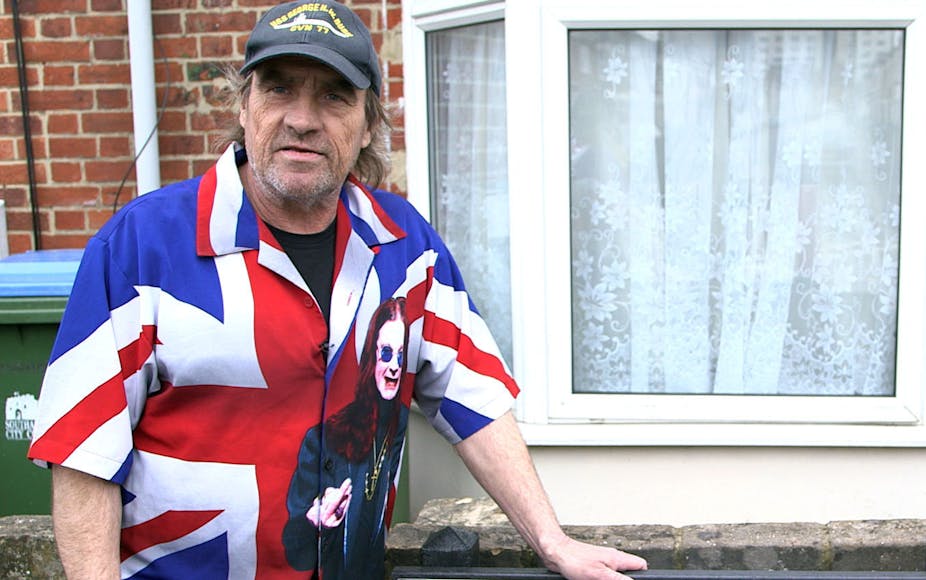Immigration Street, which was recently broadcast on Channel 4, made for horrific viewing. The sight of some residents in Derby Road, Southampton, being interviewed while subject to escalating threats, and pelted with flour and stones, was astonishing.
The hour-long documentary had been planned as a follow-up six-part series to the ratings hit of Benefits Street. Benefits Street was filmed amidst growing controversy in James Turner Street in Birmingham, and broadcast early last year. Fierce local opposition to the sequel eventually forced the film crews out of Derby Road, so Channel 4 readjusted their aim with a one-off film documenting what was starting to look alarmingly like a real-life, postmodern Do the Right Thing.
Much can – and no doubt will – be said about the attackers hurling objects at interviewees and crew, but there are some serious questions to be asked of the broadcaster and the independent company Love Productions.
First, a pretty straightforward health and safety matter. There are many ways to interview people, so was it really the best idea to parade interviewees up and down the street or have them sit outside the front of their houses? Although I’m sure this wasn’t the intention, it’s easy to see why, in such a febrile atmosphere, this was just asking for trouble. It felt like a provocation, or some kind of acting out of a battle of wills between the production company and its local opponents.

Either way, why take such risks with people’s well-being? I ask partly as a result of having been in this situation myself. I was once part of a film crew that came under a sudden stoning attack. It was frightening. We got the hell out. It’s one thing to film in a conflict zone but quite another to be the cause of one.
The film also quite clearly illustrated at least one immediate source of the trouble. We saw a number of attempts by the producers to gain consent or some sort of acquiescence from the Derby Road residents. But for all the reassurances about how the residents would be represented, the producer sounded implacably clear on one thing. As the successor to Benefits Street, this series was to be made in essentially the same way: Derby Road was to be a lightning rod for the issue of immigrants in just the way that James Turner Street was for welfare dependants.
Such titles, of course, always run the serious risk of reducing complex questions to mere populist labels, which are then stuck squarely on people who probably have some pretty strong feelings about this pigeon-holing.
Moral Panic Street
Lurking beneath the titles’ depressing glibness is the evident desire of both broadcaster and production company to create a “franchise”. Let’s call it, for want of a better phrase, “Moral Panic Street”. (You can now start guessing what might be next in the franchise.) It will have its definable stylistic elements: tabloid title, reality-show characterisation, episodic structure, working-class setting, lots of shouting, and moments of redemption.
Imposing a franchise structure on the production, I’d suggest, fatally compromises the often empathetic filming on the ground. Where this tension exists – as it also did in Benefits Street – the franchise rules tend to win, not least because the title itself frames any empathy in such a toxic way.

The reasons for spinning all this into a franchise are clear enough. Ratings for Benefits Street were very high. In a 9pm peak time slot, some episodes of the series attracted more than 5m viewers, with a remarkable 20%+ audience share. This is the broadcasting equivalent of a lottery win. With such success comes the irresistible itch to repeat it.
Benefits Street also delivered on controversy, generating viral levels of news and comment coverage. This is a kind of C4 badge of honour – although I have a sense with this particular franchise that the provocations do not appear well thought-through.
And this is where we get into the longer-term damage that these televised hostilities may have done. In future, whenever observational filmmakers venture into a British street to document people’s lives, they may discover that the well has been poisoned.
Wider damage
Winning trust – a familiar and necessary activity – will consist not only of gaining the confidence of contributors, but also persuading them that by agreeing to be filmed they’re not about to turn their locality into a war zone. The levels of suspicion toward documentary crews will now escalate. Future documentarians will find themselves having to pass a virtual lie detector test. The sentence: “I promise not to behave like a Moral Panic Street producer” must not induce any sweaty spikes on the polygraph.
Immigration Street has laid bare one thing above all: it’s hard to think of a time when filmmakers documenting British lives have had such a poor rep.
There has been trouble in the past. The Mass-Observation organisation founded in the 1930s by, among others, the documentarian Humphrey Jennings, recorded everyday British life using hundred of observers. It was criticised for resorting to surveillance techniques: observers were encouraged to report not only their own lives but also, secretively, on those around them.
You’d have thought we’d have left this style of documenting behind. But with the fall-out from Immigration Street, we again have the concern that lives and communities are being damaged – only this time by the presence of documentary crews working for executives back in London determined to repeat a hit formula.
Channel 4 has a clear responsibility now to try to repair this damage. It could start by considering whether Moral Panic Street is really adding to the national debate – or merely inflaming it.

